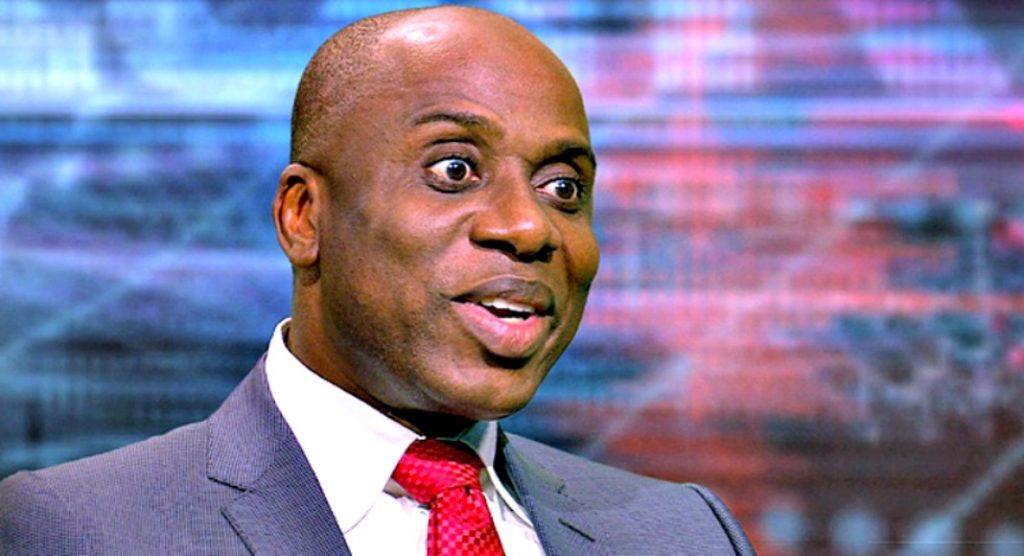Mr. Rotimi Amaechi, minister of transportation, is one of the two super ministers with the biggest ministerial portfolios in the government of President Muhammadu Buhari. He is in charge of the erstwhile ministries of transportation and aviation now merged into one. This has placed 13 agencies and parastatals of government under his supervision – a portfolio that seems to have been designed in recognition of a big role he played in the President’s electoral victory.
Amaechi is someone who has demonstrated convincing loyalty to the President and who ranks among the few that have good prospects for assuming greater responsibility in the Buhari’s administration. He shows an exceptional commitment and passion to his course, which easily win for him trust and confidence of others.
The President, for instance, is very passionate about rail projects and his plan is that the whole country should be connected by rail. Amaechi has made the President’s wish his command to the extent that even if no rail project is completed, the President will believe that his transport minister has done very well.
The same high confidence mark is working for Amaechi in the maritime sector, where the hopes for an elevated maritime industry have run quite high under his leadership. The minister has demonstrated passion for a significantly improved maritime business in Nigeria, as he takes steps to fashion a new policy direction for the sector.
Amaechi’s tenure created a positive outlook for his ministry quite early, as he held various stakeholder meetings from which he gained understanding of the operations and challenges that needed his intervention. As he went from place to place, the minister spread optimism and enthusiasm about a new down he was about to unveil in the transport sector. Out of this gesture, the operators saw immense passion for the development of the sectors and industries under his domain.
Amaechi has touched a number of the sectors and kicked off several new projects. A massive infrastructural development project is presently happening in the rail sector such as the opening up of the Abuja–Kaduna rail link in July 2016, resumption of work on the Itakpe-Warri rail line, which is expected to be completed this year. A new link from Abuja to Lokoja has been approved alongside the rehabilitation of the vandalized Lokojo-Itakpe line.
Work is advancing on the Lagos-Ibadan rail line for which a steering committee has been set up to oversee the construction work, monitor and review progress on a monthly basis. The contract from Lagos to Kano rail line is expected to gulp $8.3 billion while the Lagos to Calabar rail project is valued at $11.1 billion dollars.
Another big project is the Port Harcourt-Maiduguri rail, which is planned to run through a number of cities and state capitals from Port Harcourt to Owerri – Aba – Umuahai – Enugu – Okwa – Abakiliki – Makurdi – Jos – Bauchi – Gombe –Yola – Damaturu – Maiduguri. Finding the money to execute the projects is one of Amaechi’s big headaches.
The minister of transport is driving one of the present government’s biggest dreams – which is to see the whole country connected by rail, touching all state capitals and major cities. The minister’s vision is to develop an intermodal system for the country, hooking up the ports and major cities to the rail system so that most of the cargo movement would then be by rail.
Amaechi has initiated major development programmes in the aviation and maritime sectors aimed at building new capacities in their operations. He has pushed the matters of re-establishing national carriers in both sectors to a limelight never seen since the demise of the earlier institutions. He has a burning desire to position the maritime sector to get its fair share of the country’s international bound cargoes as well as take part in lifting Nigeria-bound cargoes from overseas trading partners.

The minister expects that the operation of a national shipping line would create a lot of job opportunities for seafarers and training of maritime professionals. His plan for the maritime sector includes changes in the shipping industry that would enhance the participation Nigerian vessels in the lifting of wet and dry cargoes from within and abroad.
The national carrier is structured to be driven by the private sector with 60 percent interest by local private investors and 40 percent stake by foreign counterparts. The project is backed by assurances of government’s might for favourable policies to enable it compete. Investors however want to see an appropriate legislation that would secure access to cargo, institutional support and insulation from political interference for the national carrier.
Amaechi has initiated reforms at various agencies under his portfolio aimed at positioning them to meet increased performance expectations and targets. This includes reforms in the Nigeria Maritime Administration and Safety Agency, which has raised the agency revenue generating capacity.
Industry operators have hailed the minister’s move to bring together indigenous ship owners under one umbrella as part of the strategy for growing the local shipping industry and empowering the operators to compete in cabotage trading. The minister gets the credit that never before has a minister of transportation gone that far in the development of the indigenous shipping industry.






